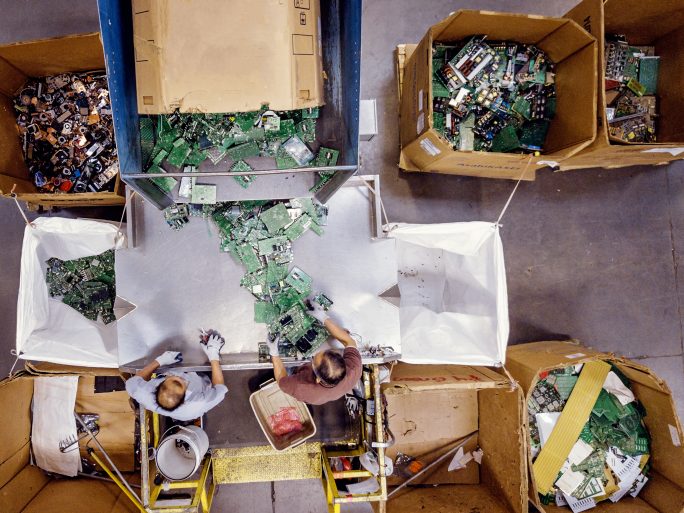Putting An End To The Throwaway Mentality In IT

A commentary by Emanuel Lippmann of Dell Technologies, on more environmental thinking and repair instead of trash in the IT industry.
Refrigerator, notebook or cell phone – in many cases, consumers are forced to throw away broken electronic devices and replace them with a new model. After all, spare parts are often hard to come by, repairs are often more expensive than buying a new one, or the devices can no longer be disassembled at all
As a result, the mountain of waste is growing: every German citizen produces an average of more than ten kilograms of electronic waste per year. According to a forecast by the Global E-Waste Monitor, the amount worldwide will rise from 53.6 million tons in 2019 to 74.7 million tons in 2030. In the EU, moreover, only about 40 percent of the e-waste generated is recycled. The rest often ends up in landfills in developing countries, where the devices become a danger to people and the environment due to the pollutants they contain.
The recycling rate must be significantly increased – as it is actually required by law. However, one must not forget: Many of the rare earths and other critical raw materials in electrical appliances cannot be recovered. What’s more, the majority of harmful emissions already occur during production. So when recyclers shred smartphones and computers that could actually be repaired, they also destroy the energy and materials they contain. That’s why there’s no way around improving the reparability of electronic devices.
What the IT industry can (and must) contribute
In principle, a modular design serves sustainability. In the event of a malfunction or upgrade, the corresponding functional module is simply replaced and the device is again ready for use. The possibility of installing more powerful components, such as a new hard disk, also prevents computers from being replaced too quickly. To do this, the case must be easily accessible and all components must be reachable with standard tools. This also includes avoiding glued components.
Another problem is the lack of service and repair manuals – not confusing manuals in complicated language, but virtual assistants that use augmented reality to help. Once the app has been installed on the cell phone, the assistant scans the device, demonstrates the necessary steps via 3D overlays directly on the hardware, and provides useful instructions.
Two other points are also important for enterprise customers: Automated maintenance support simplifies the proactive identification of hardware and software problems and thus often prevents more severe damage and thus the replacement of the device. In addition, freely available firmware or security upgrades help, so that even customers without a service contract can keep their computers up to date at all times. And if the performance of the hardware really isn’t up to scratch after a few years, refurbished devices can find a second life in less demanding environments such as training centers or educational institutions.
Repairing instead of recycling
We can no longer afford to just throw everything away. Repairing equipment has to become more attractive again. The current German government has already taken an important step in this direction by strengthening the right to repair. There are good ideas on this from other EU countries. In Sweden, for example, people pay a reduced VAT rate for minor repairs. In France, there is an index that indicates the repairability of appliances on a scale of 1 to 10. In Germany, Thuringia is a pioneer: the state subsidizes the repair of electrical appliances on a pro-rata basis, with each household receiving up to 100 euros per year in reimbursement.
A simple calculation shows how quickly an extended life cycle pays off: if households were to use their laptops, cell phones, televisions and washing machines for longer, around four million tons of CO2 could be saved every year in Germany alone, according to a calculation by the Öko-Institut. That would be the same saving that would be achieved if there were suddenly almost two million fewer cars on the roads.
![]()
Emanuel Lippmann
is Global Program Manager ESG at Dell Technologies